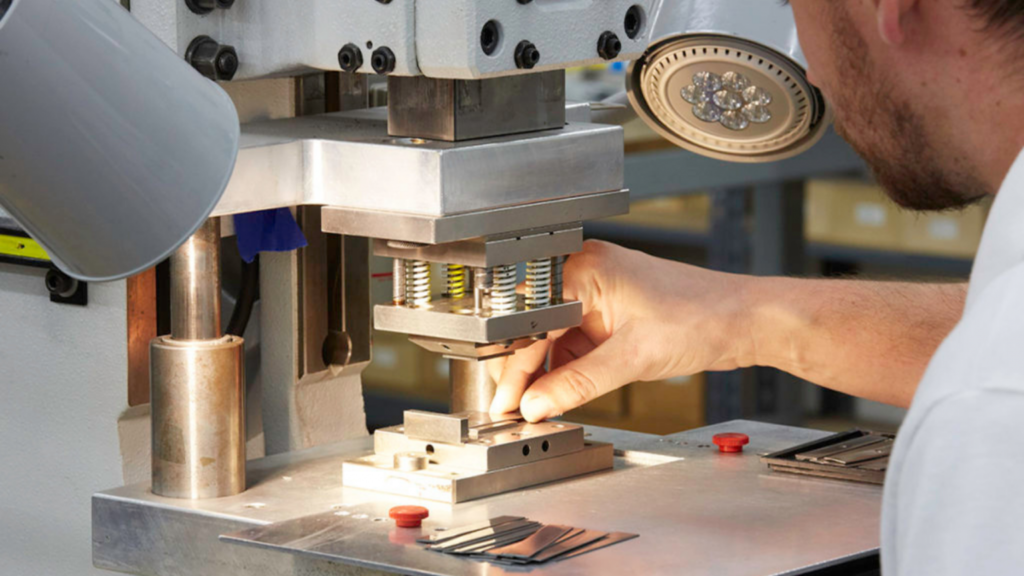Introduction to CNC Machining in the Automobile and Transport Industry

CNC machining's history in the automotive industry is a testament to technological evolution and innovation. Originating in the 1940s, CNC technology has evolved from basic punch-card machines to sophisticated, computer-driven systems. This evolution marked a paradigm shift in automotive manufacturing, transitioning from labor-intensive, error-prone manual machining to automated, precision-driven processes. The introduction of CNC machining in the automotive sector revolutionized the production line, enabling the creation of more complex and precise parts, reducing waste, and increasing efficiency. It also facilitated the shift towards just-in-time manufacturing, streamlining inventory management and reducing overhead costs.
Over the decades, technological advancements in CNC machining have had a significant impact on the automotive industry. The integration of CAD (Computer-Aided Design) and CAM (Computer-Aided Manufacturing) with CNC machines has enhanced design capabilities, allowing for the creation of complex geometries and intricate details that were previously impossible or too costly to produce. The introduction of multi-axis machines brought even greater flexibility and precision, opening up new possibilities in automotive design and manufacturing. Today, the ongoing advancements in CNC technology, such as real-time monitoring and the incorporation of AI, continue to optimize production processes, reduce turnaround times, and elevate the overall quality of automotive components.
In the automotive industry, various types of CNC machines are employed, each serving specific purposes. CNC mills, for instance, are versatile and widely used for machining complex shapes and surfaces, such as engine blocks and gearboxes. CNC lathes, on the other hand, excel in producing round or cylindrical parts, like camshafts and crankshafts. CNC routers, although less common in metalworking, are crucial for cutting and shaping large, flat components such as panels and frames. Each machine type is chosen based on its ability to perform specific operations efficiently, ensuring optimal use of materials and minimizing waste.
The specific applications of CNC machines in automobile manufacturing are vast and varied. CNC mills, with their ability to handle complex shapes, are indispensable for creating intricate engine components, intricate molds for body parts, and detailed suspension components. CNC lathes are crucial for the precise production of rotational parts like axles, drive shafts, and precision bearings, ensuring smooth vehicle operation. In the realm of panel fabrication and bodywork, CNC routers provide unmatched efficiency and accuracy. The precision and versatility of these machines allow for the production of parts that meet stringent industry standards and cater to the increasing demand for custom, high-performance vehicles.
The selection of materials for CNC machining in the automobile industry is driven by factors such as durability, weight, cost, and performance requirements. Commonly used materials include aluminum, known for its lightweight and corrosion resistance, making it ideal for body panels, engine parts, and wheels. Steel, valued for its strength and durability, is used in structural components and gears. Titanium, though more expensive, is favored for high-performance applications due to its strength-to-weight ratio. Plastics and composites are also increasingly used, especially in interior components and fixtures, due to their versatility and ease of machining.


The selection of materials in CNC machining for automotive applications is a critical process, influenced by the intended use and performance requirements of the vehicle. For structural elements that require strength and durability, such as chassis and suspension systems, high-strength steel and alloys are preferred. In contrast, components like engine blocks and transmissions, where weight reduction is crucial for fuel efficiency, aluminum and its alloys are commonly chosen. For high-performance and racing vehicles, where every gram counts, advanced materials like titanium and carbon fiber composites are often used. The choice of material significantly impacts the vehicle’s overall performance, safety, and longevity.
CNC machining is integral in creating various engine components, where precision is paramount. It is used to manufacture parts such as pistons, cylinder heads, valves, and crankshafts. These components require strict tolerances and surface finishes to ensure efficient fuel combustion and smooth engine operation. CNC machining allows for the creation of complex geometries and fine details in these parts, optimizing engine performance and fuel efficiency. The ability to produce consistent and high-quality components is essential in the automotive industry, where the reliability and longevity of an engine significantly impact the overall vehicle performance.
In transmission systems, CNC machining plays a crucial role in fabricating gears, shafts, and housings. These components require precise dimensions and surface finishes to ensure smooth power transmission and reduce wear and tear. CNC machining allows for the accurate production of these parts, maintaining tight tolerances essential for the smooth operation of the transmission system. The use of CNC technology in manufacturing these components not only enhances the vehicle's performance but also contributes to its durability and reliability. The precision of CNC machining ensures that the transmission system operates efficiently, providing a seamless driving experience.
The structural integrity of a vehicle heavily relies on the precision of CNC machined components. The chassis and frames, which form the vehicle's backbone, are often produced using CNC machining to ensure perfect alignment and strength. This precision is crucial for the vehicle's overall stability and safety. CNC machining is also employed in producing suspension components, which must withstand significant stress and strain. The ability of CNC machining to produce parts with high accuracy and consistent quality is vital in these applications, directly impacting the vehicle's handling, comfort, and safety.
CNC machining's ability to produce custom and precision parts is particularly valuable in the automotive industry. It allows for the creation of specialized components for high-performance vehicles, custom modifications for racing cars, and bespoke parts for luxury automobiles. This flexibility in manufacturing enables automakers and enthusiasts to push the boundaries of automotive design and performance. CNC machining's precision is essential in these applications, where even the slightest deviation can significantly impact the vehicle's performance. It allows for the customization of vehicles to specific requirements, whether for aesthetic, performance, or functional enhancements, catering to a niche but growing segment of the automotive market.
CNC machining has revolutionized the prototyping process in the automotive industry. Its ability to quickly and accurately produce parts from CAD designs allows for rapid testing and iteration of new vehicle concepts and components. This speed is crucial in a competitive market where time-to-market can be a key differentiator. CNC prototyping enables designers and engineers to experiment with complex geometries and innovative materials, pushing the boundaries of automotive design. The ability to quickly produce functional prototypes not only accelerates the development process but also significantly reduces the cost and time associated with traditional prototyping methods.
The custom automotive sector greatly benefits from CNC machining. It allows for the production of unique components tailored to individual preferences or performance requirements. This is particularly important for high-end sports cars, luxury vehicles, and racing applications, where customization is often a key selling point. CNC machining facilitates the creation of bespoke parts that can enhance performance, improve aesthetics, or add unique functionality. From custom engine components to tailored interior fixtures, CNC machining offers the precision and flexibility required to meet the specific demands of custom vehicle projects, thereby enabling a higher degree of personalization in the automotive industry.
Importance of Precision and Tolerances
The automotive industry is one where precision is not just a goal but a necessity. CNC machining’s ability to maintain tight tolerances is critical in ensuring the safety, performance, and reliability of vehicles. Even the slightest deviation in dimensions can lead to failures or inefficiencies in automotive systems. For instance, in engine components





